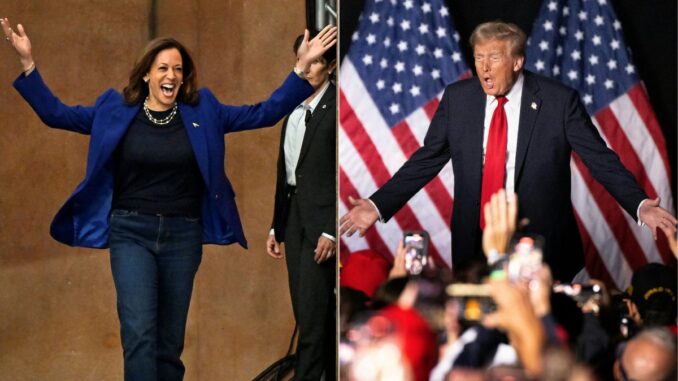
Support for presidential rivals Kamala Harris and Donald Trump remains uncertain and divided among Filipino-Americans living in various states as the upcoming US election approaches, according to Jose Manuel “Babe” Romualdez, the Ambassador of the Republic of the Philippines to the United States.
“Based on our consulates, in California, it is very clear that the majority of Filipinos are for Vice President Harris. Meanwhile in Ohio, when Filipinos are from urban cities, they are Harris. If they are from suburban areas, they are for Trump. It’s divided, really,” Romualdez said in a mix of English and Filipino during a radio broadcast.
The envoy noted that Trump is expected to receive strong support in Florida since it is a red state, whereas many Filipino voters in New Jersey and New York are going for the Democratic candidate, Harris.
“Even Filipinos are divided. Many Filipinos are for Trump. They are against the current administration for two reasons. Number one is the economy and, believe it or not, immigration,” Romualdez explained, adding that this issue is personal for many Filipinos who perceive it as unfair when undocumented immigrants are given opportunities.
He highlighted that the rivalry between the two candidates has become “neck for neck,” indicating that differing opinions have led to significant divisions among Filipinos, even in the United States.
“The division can be intense. Just like in the Philippines, even families end up fighting. They are divided,” Romualdez said.
The ambassador assured the Philippines that, regardless of the election outcome, the country would continue to strengthen its foreign relations with the United States.
He acknowledged that while there may be substantial differences in foreign policy perspectives between the candidates, priorities such as freedom of navigation and economic prosperity would remain central to US interests.
“The interest of the US and other Western countries, they want freedom of navigation because if [an] area is controlled by one government, you cannot pass through that area without asking permission. There are trillions of dollars of trade going through that region,” Romualdez explained.
Josue Raphael J. Cortez, a lecturer at the School of Diplomacy and Governance at De La Salle-College of St. Benilde, emphasized the vital role of Filipino-Americans’ votes in “shaping” the election turnout.
He elaborated that this is why both candidates “have adopted various strategies” to garner support from this demographic, utilizing tactics such as “billboards and sending candidates of Filipino descent to participate in Filipino-organized events.”
“The possible factors that Filipino-American voters will take into account will include, of course, policies relating to migration and how the next regime would ensure their protection abroad in light of ongoing issues relating to migration and racism, as well as how some of them are being affected by violent nationalist tendencies,” Cortez told Manila Standard.
“At the same time, job security for foreigners is also a key determinant for them given that they have moved there in the first place in search of greener pastures,” he added.


Be the first to comment